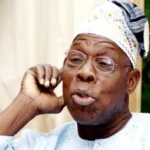The Speaker of the House of Representatives, Hon. Tajudeen Abbas on Monday underscored the need for capacity building for members of the 10th Assembly considering the high turnover rate of parliamentarians and legislative aides.
Abbas who expressed the concern during a meeting with development partners including the British High Commission, United Nations Development Programme (UNDP), and Konrade-Adenauer Foundation (KAS), gave reasons for the establishment of additional Standing Committees, including: State and Local Government, Traditional Institutions and Petroleum Resources (Training Funds) as well as parliamentary friendship groups.
He said: “this interactive meeting is organised to provide an opportunity to share ideas and updates on your contributions and support to the House on capacity development for Members and staff which many of you have been involved in for over a decade.
“One of my cardinal policy thrusts, on assumption of office as Speaker of the House, is capacity development for Members and Staff of the House of Representatives. This has become more imperative following the high turnover rate of the 10th House of Representatives where we have over 200 new Members with hundreds of Legislative Aides.
“This number of members and aides requires improved capacity to cope with the office’s demands. Hence, institutional capacity development is considered one of the priority components of the Legislative Agenda of the 10th House.
“It is important to acknowledge the technical support some of you have been providing for the National Assembly. We recognize the support and contributions of the Development Partners, such as the Policy and Legal Advocacy Centre (PLAC), the Department for International Development (DFID), the Foreign, Commonwealth and Development Office (FCDO), Konrade-Adenauer Foundation (kAS), United Nations Development Programme (UNDP), Partnership to Engage, Reform And Learn (PERL), the Civil Society Legislative Advocacy (CISLAC), International Community on Red Cross (ICRC), Order Paper, among others.
“Your interventions have partly contributed to the success story of the Legislative Business of the House in the past. I hope that you will not do less even in this Assembly.
“The Legislative Agenda of the 10th House is the barometer to monitor and evaluate the engagement of the House with Nigerians and we expect that you will as usual play critical role in the successful implementation of the Agenda.
“To us as the Representatives of the people, institution building is the gateway to professionalism, efficiency and productivity. We are committed to ensuring that the 10th House of Representatives can respond to the yearnings and expectations of the citizenry. We have been called to serve at the most critical period in the nation’s political history.
“Therefore, it is only a committed Legislature which is properly equipped that will be able to deliver service to meet the expectations of the people,” he noted.
While acknowledging the support of some of the Development Partners for various Committees and Departments of the House of Representatives, he lamented that the stakeholders “sometimes, organise programmes without a coordinated approach or NEEDS assessment of the House.
“The assumption is that each Development Partner has its own area of focus for which budgetary provisions would have been made and their representatives in Nigeria would engage the relevant Committees of the House in that regard. While that support is greatly appreciated, there is need for coordination in the 10th House because of our peculiar challenge of capacity gaps.
It is on this note that I have considered the proposal for the creation of ‘A Programme Coordinating Unit (PMU) in my office to be supervised by the Special Adviser on Policy and Strategy. The purpose of the Unit is to ensure that all partnership programmes of the House are properly documented and utilised to bring about the desired change. The Unit is to provide guidance in line with the Legislative Agenda of the House for your technical support and partnerships. This is to ensure that all Committees and departments of the House receive necessary and equal attention.”
To this end, he urged all the Development Partners to identify the areas that fall within the purview of their respective organisations and direct their interventions as such.
“Looking at the legislative agenda, you would have observed the issues of women in parliament and inclusion in governance, youth empowerment, constitution review, electoral review and institution building. This is meant to reinforce the legislative actions that started in the 9th House. However, we have recently added some standing committees to strengthen engagement with the people.
“We now have committees on state and local government, traditional institutions and petroleum resources (training funds). We have also further increased the number of parliamentary friendship groups to deepen relations with other parliaments to share knowledge and experiences in parliamentary practice and promote good governance.
“To underscore our disposition to serve Nigerians, we created a committee on monitoring and evaluation of the implementation of the legislative agenda as part of our internal mechanism to enforce compliance and also a committee on monitoring and evaluation of the standing committees to ensure that there is efficiency and accountability in the business of the house. We are confident that working with you as partners in the development and sustenance of our democracy, the 10th House of Representatives will be a success story.”
In his remarks, leader of the delegation, Mr. Chris Okeke, Senior Governance Adviser, British High Commission who affirmed that the development partners have had a long-time partnership, and pledged support for the 10th House of Representatives in building accountable democracy.
READ ALSO FROM NIGERIAN TRIBUNE






